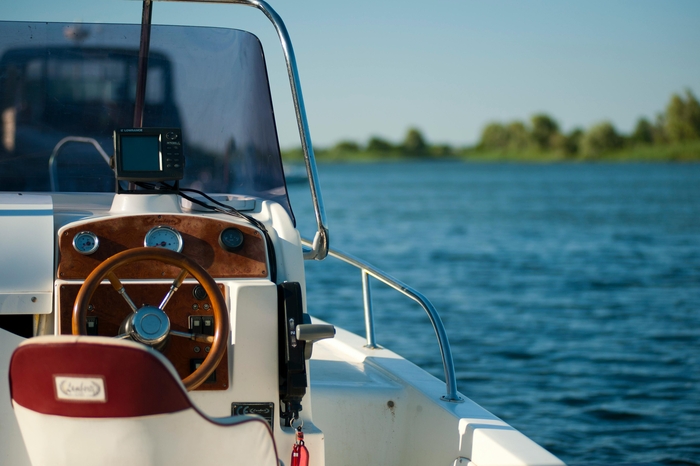Operating a boat comes with a significant responsibility for the safety of everyone on board and the surrounding public. However, boating accidents remain prevalent, often involving young or inexperienced operators.
A specific legal issue that frequently arises in such incidents is negligent entrustment of a boat, often when alcohol and minors - those aged under 21 years old- are involved. If the operator of a boat allows an underage individual to operate the vessel after they have consumed alcohol, and an accident occurs, they could be liable for negligent entrustment.
Defining “Under the Influence” In the Eyes of the Law
In the state of Florida (under Florida Statutes § 322.2616), a person under the age of 21 is considered under the influence of alcohol if they have a blood-alcohol concentration (BAC) of 0.02 or higher. This is notably lower than the legal BAC threshold for individuals over the age of 21, which is 0.08 (Florida Statutes § 316.193). Reaching a BAC of 0.02 may take as little as 12 oz of beer, 5 oz of wine, or a 1.5 oz shot of spirits. Any underage individual who consumes alcohol on a boat not only endangers themselves but puts the safety of others at risk.
Operating a boat while intoxicated is illegal and considered as serious as driving a car or land-based vehicle under the influence (DUI). Boat owners, including parents, providing access to minors who might consume alcohol, even a small amount – say one beer, and operate a vessel are taking a significant and preventable risk.
What Is Negligent Entrustment?
Negligent entrustment occurs when an individual (the "entrustor") provides another party (the "entrustee") access to a potentially dangerous object, such as a vehicle or boat, in circumstances where the entrustor knew, or should have known, the entrustee might use it irresponsibly or dangerously.
When applied to boating, negligent entrustment occurs if the boat owner knowingly allows:
- A minor to operate the boat without sufficient experience or capability.
- Anyone to operate the boat while under the influence.
Negligent entrustment opens the entrustor to legal liability for any resulting accidents, potentially creating devastating legal, financial, or personal repercussions for boat owners.
Filing a Claim for Negligent Entrustment
Under Florida law, negligent entrustment is a civil tort claim. The injured party can sue the entrustor if they can prove the following elements:
- Ownership or control over the boat by the entrustor.
- Knowledge or reason to believe that the person entrusted posed a risk of harm due to inexperience, intoxication, or irresponsibility.
- The entrustor gave permission or allowed access to operate the boat despite these risks.
- The entrusted person’s use of the boat caused an accident or injury.
For example, in a recent case, a parent allowed their 18-year-old son to take out the family speedboat with friends for a weekend trip. The parent observed alcohol in the son’s vehicle but said nothing. The son later operated the boat while intoxicated and caused a collision with another vessel, severely injuring multiple people. The parent was held financially and legally accountable for deliberately ignoring red flags.
Boat owners must not knowingly allow, and should take reasonable steps to prohibit, the operation of a boat by any underage individuals who have consumed an alcoholic drink. It is not a valid legal defense for a boat owner to claim that they did not know an underage individual drank alcohol.
Legal Consequences of Negligent Entrustment
Consequences for negligent entrustment vary by state but typically include:
- Civil Liability: Compensation for medical expenses, property damage, or pain and suffering to injured parties.
- Civil Penalties: Families of victims may file wrongful death lawsuits or personal injury claims.
- Criminal Consequences: Depending on the state, allowing a minor to operate your boat could lead to criminal charges, including reckless endangerment.
- Insurance Complications: Some insurance policies will not cover liability if the accident occurred due to a criminal act, potentially leaving the boat owner personally accountable.
How Boat Owners and Parents Can Protect Themselves
Avoiding negligent entrustment is not just about legal protection. It is also a moral obligation to ensure safety. Boat owners should monitor what alcohol is brought onto their boat and who is consuming it. If the boat stops at a dock, restaurant, sandbar, raft up, or other location, they should monitor what their underage passengers are doing or, if that is not possible, make sure they are the only person who operates the boat. Ultimately, a boat owner keeping sole control of the boat may be the only way to ensure that a minor does not consume alcohol and drive the boat.
Be vigilant and firm in refusing access to your boat if there are any signs of underage drinking. Set clear rules, ensuring minors understand the serious consequences of drinking while operating a boat.
Boat rental companies should confirm they are renting to legal, safe operators, and always:
- Check ID to confirm the operator’s age.
- Require proof of previous boating experience or education.
- Set strict alcohol use policies in your rental agreement.
For example, a boat rental company (also called a livery) could be sued under negligent entrustment laws for renting a watercraft to a group of college students who were carrying coolers filled with beer if the boat rental company failed to properly instruct them on safe operation and verify their boating license.
Protecting Lives and Liability
Negligent entrustment of a boat can permanently change lives—for the worse. By ensuring responsible use of your vessel and adhering to safety protocols, you can protect your loved ones, passengers, and others on the water.
If you own a boat, it’s critical to establish clear policies and enforce them rigorously. Negligent entrustment is preventable when the right precautions are in place.
Navigating negligent entrustment claims requires a deep understanding of both state and federal maritime laws. Hiring an experienced maritime attorney to explore and address the nuances of liability claims can help ensure justice for those involved and get victims the compensation they deserve. At Mase Seitz Briggs we have experience handling boat-related negligent entrustment claims. If you or a loved one were the victim of an incident involving negligent entrustment, call us today to discuss your options.




